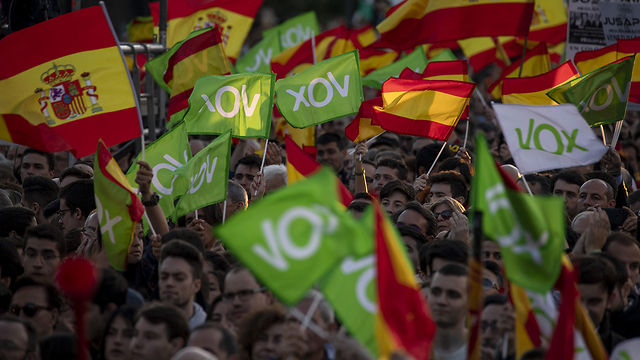
The tweet was removed after outraged reactions from the Spanish Jewish community claiming some Vox members are anti Semites and Holocaust deniers.
Hazan tweeted his support for Vox claiming it is a supporter of Israel in the EU. Anyone who supports Israel has my support back said Hazan
Spain returns to the polls on Sunday for uncertain snap elections marked by a resurgence of the far-right after more than four decades on the outer margins of politics.
Opinion polls give outgoing socialist premier Pedro Sanchez a win but without the necessary majority to govern alone, meaning he will have to seek alliances in a political environment that has soured since Catalonia's failed secession bid.
By far the novelty of these elections is the emergence of far-right party Vox, which burst onto the scene in December regional polls in southern Andalusia and looks set to make its first-ever entrance into the national parliament.
Polls predict it could take more than 10 percent of the votes in a country that had no far-right party to speak of since the death of dictator Francisco Franco in 1975, in what is likely to cause further concern in Europe.
Sanchez was forced to call Sunday's early elections after Catalan pro-independence lawmakers in the national parliament, angered at the trial of their leaders in Madrid, refused to give him the support he needed for his 2019 budget.
Right-wing parties have for their part lambasted Sanchez, at the head of a minority government, for his attempts to negotiate with Catalan separatists who still govern the region, accusing him of being a traitor.
With no party expected to get anywhere near an absolute majority in what will be the third elections in three-and-a-half years, Spain's fragmented political landscape looks set to continue.



















